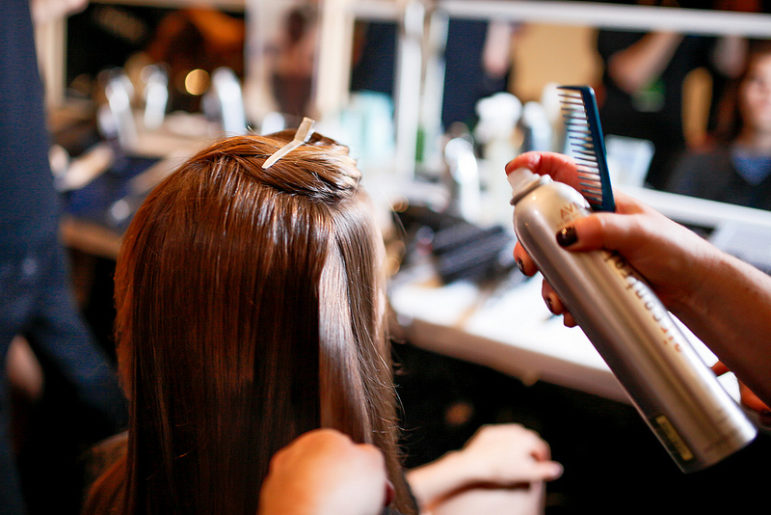
January 1, 2017; New York Times and NPR, “The Two-Way”
According to a CDC study from 2003, domestic violence is the cause of two million injuries in the U.S. every year. Beginning this year, the state of Illinois has a new law educating hair stylists, nail technicians, and aestheticians on ways to help customers who are victims of domestic violence.
Joan Rowan is a hair stylist and owner of two hair salons in the Chicagoland area. In her forty-one-year career, she has had multiple conversations with clients who were experiencing domestic abuse: “Sometimes they tell you so much they never come back again, because they’re afraid, or they’re embarrassed, they don’t know what to do.” Rowan has provided training to her stylists to help them support their clients, but she has wished there were more she could do.
For a long time, public health campaigns among others have recognized the value of hair salons and barber shops as centers for community education and organizing, so the concept of making use of these venues is not new. But the state of Illinois is now building on these relationships with a new law that went into effect January 1st. Advocated for by the nonprofit Chicago Says No More, the law is the first of its kind to reach out and provide a one-hour training to hair stylists and nail technicians every two years as part of their license renewal. Over the next two years, it’s estimated about 88,000 stylists will participate in the program.
Sign up for our free newsletters
Subscribe to NPQ's newsletters to have our top stories delivered directly to your inbox.
By signing up, you agree to our privacy policy and terms of use, and to receive messages from NPQ and our partners.
Chicago Says No More created the “Listen. Support. Connect.” program with the help of Cosmetologists Chicago. The program educates stylists on how to identify signs of abuse and assault and provide resources. Stylists are required to participate in the program but do not have to report the violence and are protected from any liability.
Although the number of independent neighborhood hair salons has been decreasing over the last forty years, hair stylists and their salons continue to have a special relationship with their clients and community. Often, they serve clients for many years and sometimes multiple generations of the same family. The relationship is something Illinois State Senator Bill Cunningham, one of the legislators responsible for introducing the law, knows personally: His wife was a hairstylist in her early twenties.
The program was built upon the Professional Beauty Association’s Cut It Out Campaign. The national campaign provides resources “mobilizing salon professionals and others to fight the epidemic of domestic abuse in communities across the U.S.” It was created in 2003 after a similar statewide program was developed by the Women’s Fund of Greater Birmingham and the Alabama Coalition Against Domestic Violence.
There’s an unspoken downside, however: Although the new Illinois law provides resources to women experiencing abuse, since the state is again without a budget, many of the organizations these women will look to for help are not receiving state funding and may not have the staff or programs to help.—Gayle Nelson











